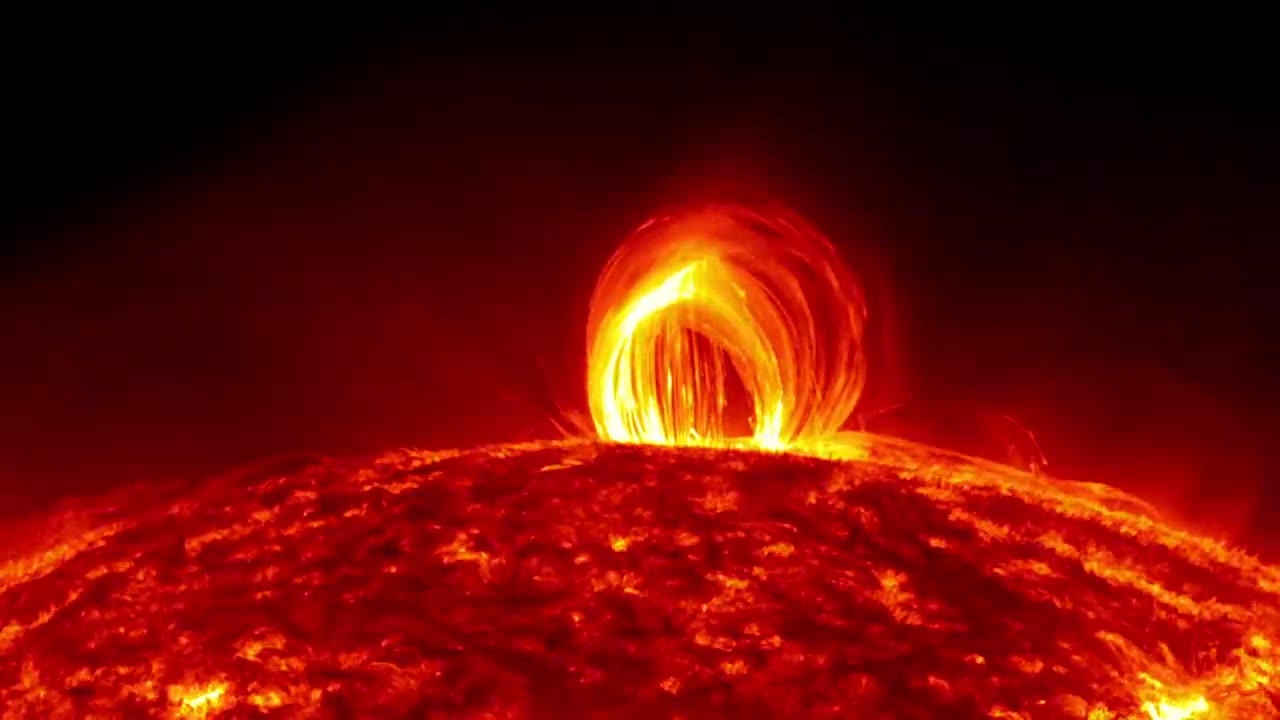Premium Only Content

NASA | Fiery looping Rain on the Sun
Eruptive events on the sun can be wildly different. Some come just with a solar flare, some with an additional ejection of solar material called a coronal mass ejection
(CME), and some with complex moving structures in association with changes in magnetic field lines that loop up into the sun's atmosphere, the corona.
On July 19, 2012, an eruption occurred on the sun that produced all three. A moderately powerful solar flare exploded on the sun's lower right hand limb, sending out light and radiation. Next came a CME, which shot off to
the right out into space. And then, the sun treated viewers to one of its dazzling magnetic displays -- a phenomenon known as coronal rain.
Over the course of the next day, hot plasma in the corona cooled and condensed along strong magnetic fields in the
region. Magnetic fields, themselves, are invisible, but the charged plasma is forced to move along the lines,
showing up brightly in the extreme ultraviolet wavelength of 304 Angstroms, which highlights material at a temperature of about 50,000 Kelvin. This plasma acts as
a tracer, helping scientists watch the dance of magnetic fields on the sun, outlining the fields as it slowly falls back to the solar surface.
-
 19:01
19:01
World2Briggs
13 hours ago $7.18 earnedMove Here Before It’s Too Late! 10 Future Boomtowns in the U.S.
31.3K11 -
 8:50
8:50
The Rad Factory
19 hours ago $6.27 earnedShifter Kart on Snow Tracks Rips City Streets
35.7K12 -
 2:29:58
2:29:58
Wahzdee
5 hours agoPUBG is 8 Years Old & Still Beats Every Other BR 🤷♂️🎯
32.9K5 -
 LIVE
LIVE
PudgeTV
11 hours ago🟠 Gaming on Rumble | Assassins Creed: Odyssey
184 watching -
 7:12
7:12
MichaelMotamedi
20 hours ago $1.58 earnedInside the Sacred World of Rastafarian Food
31.2K6 -
 11:24
11:24
LFA TV
1 day agoARTIFICIAL INTELLIGENCE SAYS J6 JUDGES ARE CORRUPT!
41.6K6 -
 9:02
9:02
ARFCOM News
18 hours ago $3.23 earnedTrump Fixes Concealed Carry | Time Travelling Judge | DoJ Goes After CA Infringements
40.6K4 -
 18:05
18:05
Mrgunsngear
17 hours ago $3.64 earnedHeckler & Koch VP9A1 K Review: The Best Do All Handgun?
38.3K7 -
 14:40
14:40
Clownfish TV
16 hours agoDisney Getting DESTROYED by YouTube...
29.9K4 -
 10:28
10:28
ariellescarcella
16 hours agoThis Is NOT A Normal Face : The Psychology Behind Woke Manipulation
20.1K7